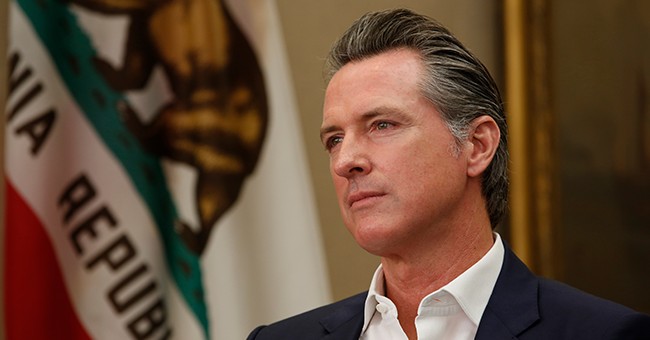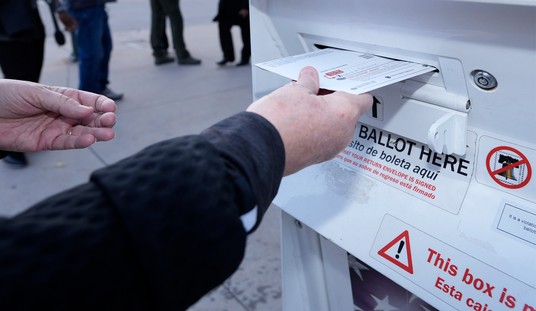
The coronavirus pandemic has given governors across the fruited plain the opportunity to embrace their inner dictator, and few have done it as well as California’s Gavin Newsom. (Do I need to indicate his party affiliation anymore at this point?) The man has issued hundreds of wide-ranging Executive Orders – some of them not applicable to his winery – and sent a billion dollars to China for masks (many of which ended up not passing NIOSH inspection), just for starters.
Numerous lawsuits have been filed challenging his authority, and one is actually going to trial on October 21 after the Court denied Newsom’s Motion for Judgment on the Pleadings earlier this week. Filed by two Assemblymembers, Kevin Kiley and James Gallagher, the lawsuit challenges Newsom’s authority to issue an Executive Order amending sections of the California Elections Code for the upcoming general election.
Kiley and Gallagher won a temporary restraining order against Newsom, which an appellate court later rescinded. After filing “hundreds of pages” in briefings, according to Kiley, the parties were in court on October 7 to argue mutual dispositive motions.
Of those filings, Kiley writes:
The Governor’s discombobulation is clear from the cynical, bizarre, irrelevant, and misleading arguments he made in his 20-page Opposition Brief filed on Monday:
- Scare tactics: He claims our lawsuits threatens to “throw into chaos current efforts to combat the wildfires now burning across the State.”
- Deception: Repeatedly, his brief selectively quotes provisions of California law, editing out legal limitations on his own power in hopes that the Court won’t notice.
- Diversions: He devotes much of the brief to refuting a legal theory we didn’t even advance.
- Lawlessness: He describes Separation of Powers as “flexible” and “pragmatic,” some airy-fairy theory where anything goes, so he can claim a roving one-man lawmaking authority that is foreign to the Constitution and republican government itself.
In a reply brief, Kiley and Gallagher cited Newsom’s behavior in continuing to issue Executive Orders despite being chastised by lawmakers from both parties and the fact that he has already had one restraining order issued against him on the issue:
“Our Opening Brief warned of the dangers of an extended State of Emergency, with a Governor apt to ‘fall into the habit of acting unilaterally’ even for non-emergency purposes. As if to prove the point, on September 24 Governor Newsom issued a unilateral Executive Order banning gas-powered vehicles by 2035. In the Order, he did not cite the Emergency Services Act – a chilling sign that seven months into this emergency, lawmaking by decree has become normalized. The time for a judicial check has arrived, as has already occurred in numerous other states.”
Now that Michigan Gov. Gretchen Whitmer’s been reined in somewhat by the Michigan Supreme Court, Kiley and Gallagher have filed a Notice of Supplemental Authority in their case, noting the similarities in the two cases:
Plaintiffs JAMES GALLAGHER and KEVIN KILEY hereby provide notice of a new opinion from the Michigan Supreme Court issued two days after Plaintiffs filed their Reply Brief, which holds that an emergency powers law similar to California’s violates a constitutional separation-of-powers provision virtually identical to California’s.
The Court there found “an unlawful delegation of legislative power to the executive branch,” just as Plaintiffs here argue that “lawmaking power cannot be constitutionally delegated” to the executive branch…
The Court there relied on the proposition that a Legislature cannot give the Executive Branch “a roving commission to repeal or amend by executive order unspecified provisions included anywhere in the entire body of state law,” just as Plaintiffs here argue that our Legislature cannot “give[the Executive Branch a roving authority to create any and all new laws in any California code.”
In the brief, Kiley and Gallagher argue that if California courts use the same rationale the Michigan Supreme Court used, there are two possible outcomes:
As noted in their reply Brief, Plaintiffs’ primary legal theory in this case does not require a finding that the Emergency Services Act is unconstitutional. However, both sides agree that the question of whether it is constitutional is before the Court. The Michigan decision thus crystallizes the possible outcomes of this case:
- The Court can accept Plaintiffs’ statutory interpretation and rule that the executive order was not authorized by the Emergency Services Act; or
- If the Court instead accepts the Defendant’s statutory interpretation of broad unilateral authority under the Act, the Act itself should be declared unconstitutional.
Given that Secretary of State Alex Padilla has issued 14 “emergency” regulations regarding the upcoming election that rely upon what might be an invalid Executive Order issued by Gov. Newsom, it’s crucial that the state courts resolve this question without delay.













Join the conversation as a VIP Member